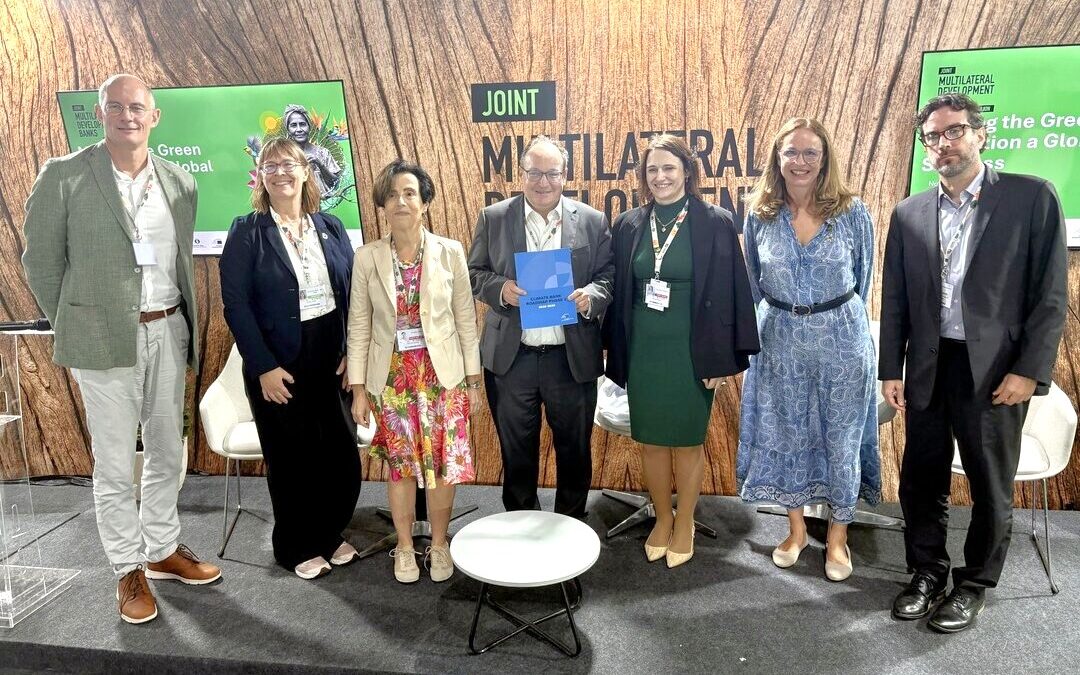EIB Widens Access to Green Finance With Global Green Checker at COP30
The EIB expands its Green Checker tool beyond Europe to speed global climate finance access as COP30 spotlights action.
The European Investment Bank Group expanded its Green Checker tool to countries outside the European Union on Tuesday, aiming to speed access to green finance and help public and private partners design projects that meet climate and environmental standards.
The Green Checker now covers parts of North Africa, the Middle East, the Western Balkans, the Caucasus and the Eastern Neighborhood. The upgraded version adapts to regional markets.
It offers simplified data inputs and flexible parameters that reflect local needs. Consequently, users can assess climate projects with greater clarity.
The global launch took place at COP30 in Belém as part of the EU Global Gateway Investment Agenda. EIB Vice President Ambroise Fayolle said the platform will help companies check if their projects meet EIB and EU climate criteria. “We are now broadening its scope to include countries beyond Europe,” he said. He added that the tool will support more climate investments and help small and medium-sized firms test eligibility.
Clear Process for Climate Screening
The Green Checker guides users through a step-by-step assessment. It evaluates environmental performance and checks alignment with EIB green financing standards.
It also generates tailored reports that estimate emissions reductions, projected energy savings and other climate benefits. Each report tests consistency with the EU Taxonomy.
Although built for financial intermediaries such as commercial banks and leasing firms, the tool is free and publicly accessible. SMEs, small public bodies and individual clients can use it to gauge their project ideas. As a result, a wider group of promoters can explore green finance options.
Digital Tools and Technical Assistance
Beyond the Green Checker, the EIB is developing other online resources. One example is the Decarbonization Guide, created through advisory work in North Macedonia and Morocco. These tools guide banks and businesses on transition risks and climate strategies.
In addition, the EIB offers technical assistance through credit lines and programs such as the Greening Financial Systems Technical Assistance Program. These efforts help economies adjust to climate risks, adopt sustainable practices and design more resilient projects.
Fits Into the Global Gateway Strategy
The expansion aligns with the Global Gateway strategy, the EU’s plan to reduce global investment gaps and build secure digital, energy and transport links. It also aims to strengthen health, education and research systems.
Global Gateway follows a Team Europe model that brings together EU institutions, member states and European development finance bodies. Together, they plan to mobilize up to €300 billion in public and private investments between 2021 and 2027. The strategy seeks to create stable partnerships rather than dependencies.
EIB Focus at COP30
The EIB Group is sharing updates at COP30 alongside other multilateral development banks at a joint pavilion. The bank is outlining the second phase of its Climate Bank Roadmap, which will guide its financing priorities through the decade.
Phase two seeks to reinforce Europe’s green industrial transformation, energy security and competitiveness. It also aims to double adaptation finance and simplify procedures to speed green investment. The roadmap builds on progress since its launch in 2020.
EIB’s Broader Role
The bank finances projects across eight priority areas that support EU policy goals, including climate and environmental action, digitalization, innovation, social infrastructure, agriculture, cohesion and security.
The EIB Group signed nearly €89 billion in new financing for more than 900 projects in 2024. About half of its lending within the EU goes to cohesion regions. Nearly 60 percent of its annual investments support climate and environmental sustainability.
EIB Global, the group’s development arm, works to deepen partnerships across emerging markets. It operates through local offices and collaborates with governments, development institutions and civil society groups.
Also Read:
EIB lends $94M to Spain’s CAF for Sustainable Mobility Innovation
Nirmal Menon
Related posts

Subscribe
Error: Contact form not found.


